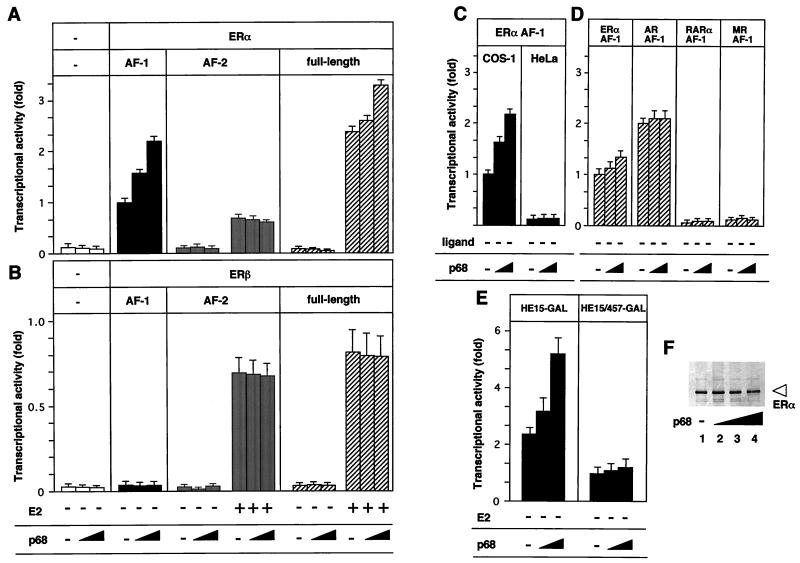FIG. 6.
p68 potentiates the ligand-induced transactivation function of hERα through AF-1. (A) p68 potentiates AF-1 but not AF-2 of hERα. COS-1 cells were cotransfected with 0.40 μg of HE15-GAL(AF-1), LBD-GAL(AF-2), or HEGO (AF-1 plus AF-2) (26) and with either 0, 0.3, or 0.6 μg of pSG5-p68 in the presence or absence of E2 (10−7 M), along with 2 μg of 17M2G-CAT or 2 μg of ERE-G-CAT (for HEGO only). p68 potentiated the ligand-induced transactivation of the full-length hERα and AF-1 but not AF-2 activated by E2. (B) p68 has no effect in the transactivation function (AF-1 and AF-2) of hERβ. (C) p68 potentiates the hERα AF-1 activity in COS-1 cells but not in HeLa cells. (D) p68 has no effect on the AF-1 activities of the other nuclear receptors. (E) p68 potentiates the hERα AF-1 phosphorylated at the Ser118 residue. COS-1 cells were cotransfected with HE15-GAL or HE15/457-GAL along with either 0, 0.3, or 0.6 μg of pSG5-p68 and 2 μg of 17M2G-CAT. (F) p68 does not affect the expression levels of the hERα A/B domain. COS-1 cells were transfected with 0.40 μg of HE15-GAL and with either 0, 0.15, 0.3, or 0.6 μg of pSG5-p68. A Western blot analysis shows that the amount of the expressed chimeric protein is not affected by p68 expression. The open arrowhead indicates the position of the protein.

